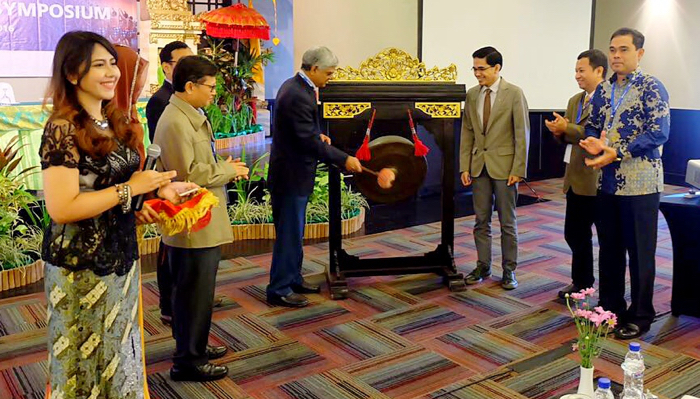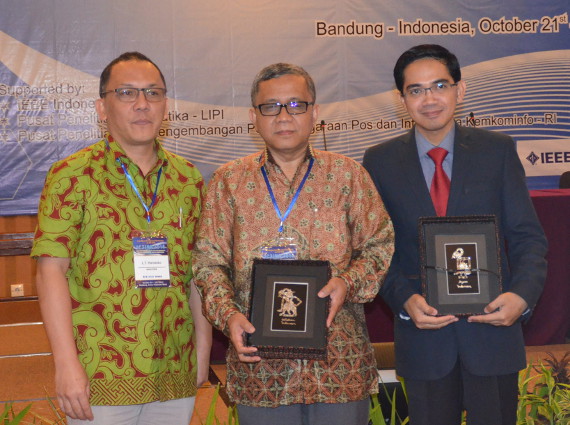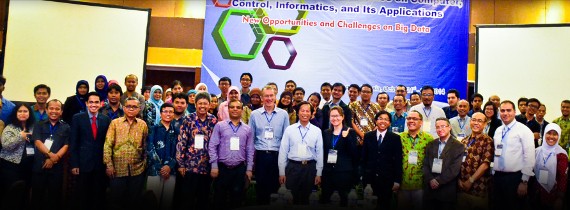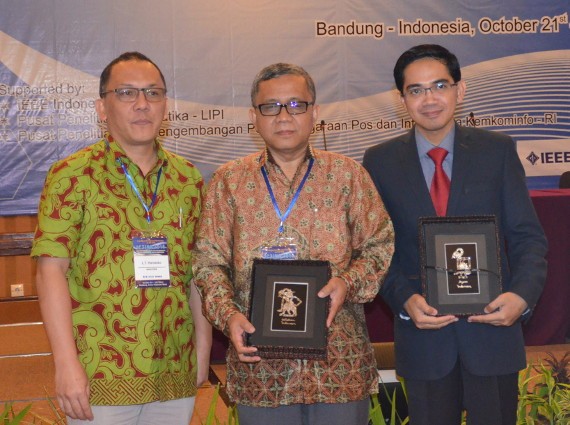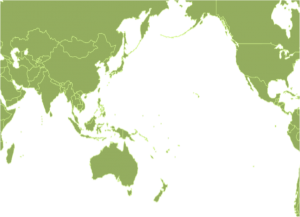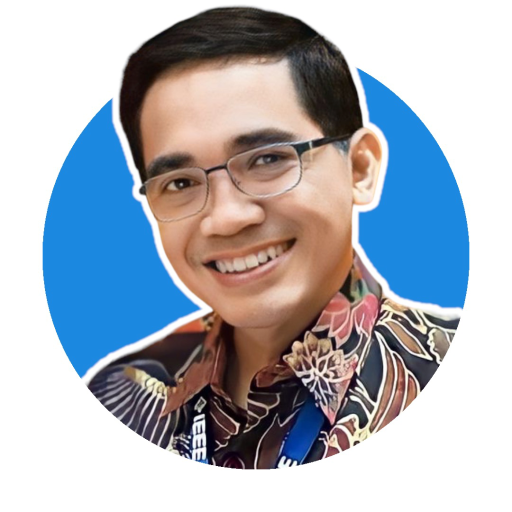The 2016 IEEE Region 10 Annual Symposium (TENSYMP 2016) has been carried out in Sanur Paradise Plaza, Bali Island, Indonesia, in 9–11 May 2016. TENSYMP is the second flagship conference belongs to the IEEE Region 10. But TENSYMP is relatively new: this event was only the fourth TENSYMP. The aim is to serve IEEE contribution to the development, progress and welfare of countries in the Asia-Pacific region by disseminating technological knowledge and experience.

There were almost 213 papers submitted to the conference this year, of which only 96 papers were accepted, and 72 were presented in this conference. So, acceptance rate was 45%, and attendance rate was 75%. The conference was opened by IEEE Region 10 Director, Ramakrishna Kappagantu, accompanied among others by:
- Satriyo Dharmanto, IEEE Indonesia Section Chair
- Dr. Ford Lumban Gaol, IEEE TENSYMP 2016 General Co-Chair
- Kuncoro Wastuwibowo, IEEE TENSYMP 2016 General Co-Chair
- Prof. Gamantyo Hendrantoro, IEEE TENSYMP 2016 TPC Chair
- Dr. Basuki Yusuf Iskandar, Head of Research & HR Development of the Indonesian Ministry of ICT
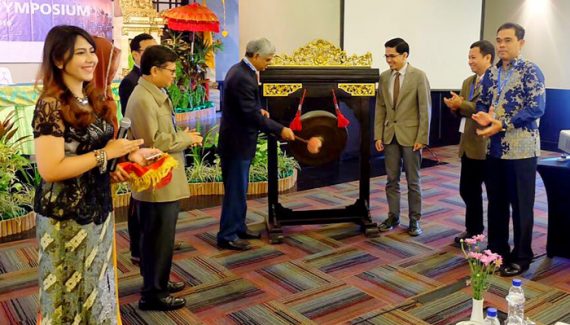
The topics for TENSYMP 2016 were selected by considering the position of Asia Pacific area as de facto centre for the ICT research, development, and industry. Digital devices, services and applications proliferate in unprecedented growth; but only a small number will become success stories. The others, despite their idealistic technical plan, will succumb the poor access to technology, market, community, or investment. It is the duty of the IEEE Region 10 as a community to arrange a coherence among those technologies, infrastructures, and business opportunities, to accelerate our common growth toward a digital society. Other big challenges are to develop and deploy our technology in meaningful ways – in real applications to enhance the value of human life. This is the expectation to choose the topic of TENSYMP 2016: Smart Computing, Communications, and Informatics of the Future. While we carry out deeper researches on those smart services and platforms; we keep in mind that our works are to enhance the quality of life.
On the Opening Speech, IEEE Region 10 Director Ramakrishna Kappagantu mentioned that with TENSYMP, IEEE Region 10 aims:
- To provide a prestigious international forum for specialist presentations and interactions in one or more areas of Electrical, Electronics, Computer and Information technology through papers, exhibitions, plenary talk, tutorials, and other activities;
- To contribute to the development, progress and welfare of countries in the Asia-Pacific region by disseminating technological knowledge and experience.
- To encourage the study and discussion of technology and technological applications in a broad social, political and human context;
- To polish and boost the interpersonal and professional skills of volunteers with the guidance of leaders and the renowned personalities in the respective field of Engineering & Technology.
The conference presented five prominent keynote speakers:
- Prof. Kukjin Chun: Microelectromechanical Systems Technology Development.
- Prof. Benjamin Wah: Consistent Synchronization Of Action Order with Least Noticeable Delays Ini MultiPlayer Online Games
- Prof. Rod van Meter: Analyzing Applications for Quantum Repeater Network
- Prof. Soegijarjo Soegidjoko, Biomedical Engineering Advances for a Better Life in Developed & Developing Countries
- Dr. Basuki Yusuf Iskandar
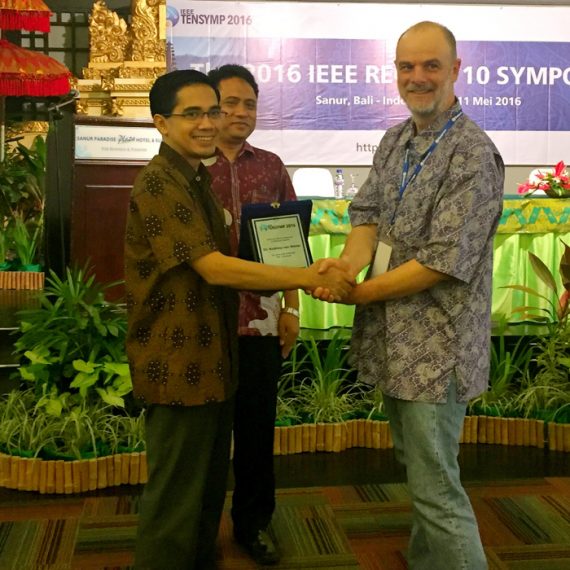
The conference also presented 7 tutorial sessions, presenting tutorial speakers from spreading countries in Asia Pacific Region.
There was a Gala Dinner session on the first night of the conference, attended by all participants of the conference, and also by Prof Kukjin Chun as the Director-Elect of IEEE Region 10.
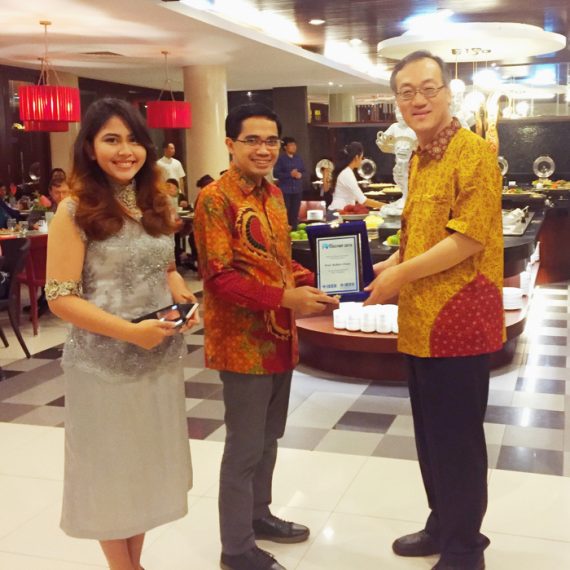
Other programs related to IEEE TENSYMP 2016 were, among others:
- IEEE Region 10 Young Professional Gathering
- IEEE Region 10 Women in Engineering Sharing Session
- IEEE Region 10 Education Activities Sharing Session
- IEEE TENSYMP 2016 Industry Forum

